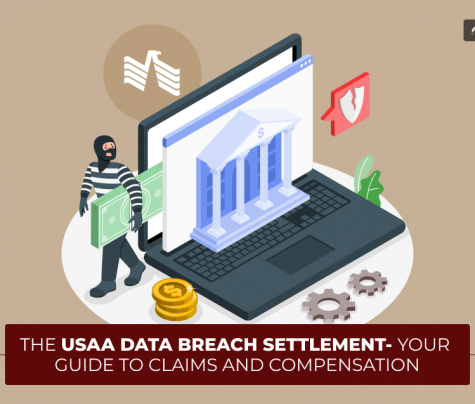
If you are a US citizen living abroad, it might be challenging to deal with the tax procedure. The United States needs all the citizens, including green card holders, to report their total income, file different forms if they have foreign assets, and follow all their regulations.
This includes the Foreign Bank Account Report (FBAR) and the Foreign Account Tax Compliance Act (FATCA). If an expat fails to abide by the laws, they might have to face substantial penalties. This is one of the major reasons why you would need an expat tax attorney.
Many expatriates wonder whether they need a tax attorney or if a tax professional, such as a Certified Public Accountant (CPA) or an Enrolled Agent (EA), is sufficient. The right choice depends on the complexity of your tax situation and whether legal representation is necessary.
The Difference Between a Tax Attorney and a Tax Professional
Before we dig deep, let’s take a look at the difference between a tax professional and a tax attorney.
Tax Professionals (CPA or Enrolled Agent)
Tax professionals, including Enrolled Agents and CPAs, specialize in financial planning, preparation, and tax paying. They assist expats with:
- Filing their annual US tax returns. This includes Form 1040, Form 2555 for the Foreign Earned Income Exclusion, and Form 1116 for Foreign Tax Credit.
- reporting any foreign financial assets and accounts, like FATCA and FBAR compliance.
- Making sure everything is in order with IRS regulations to avoid penalties.
- They advise on tax-efficient financial strategies for self-employed people, invest abroad or have their own business.
A tax professional is the first person a US expat will contact. They guide people on tax-saving strategies and make sure that the expats are abiding by the US tax laws.
Tax Attorneys
A tax attorney is a legal professional with expertise in tax law and IRS procedures. Unlike tax professionals, attorneys can provide legal representation and confidential legal advice under attorney-client privilege. A tax attorney is typically required in situations involving:
- IRS disputes, audits, or tax fraud investigations.
- Legal representation in tax court or negotiations with the IRS.
- US citizenship renunciation and expatriation tax planning.
- Resolving significant IRS tax debt and penalties.
- Complex estate planning involving foreign trusts and inheritance tax issues.
While tax professionals handle routine tax filing and compliance, tax attorneys step in when a taxpayer faces serious legal consequences related to their tax obligations.
When to Use a Tax Professional as a US Expat

For most expatriates, a tax professional is the right choice for routine tax filing and compliance.
Annual US Tax Filing for Expatriates
US citizens living abroad need to file a US tax return and report their total income for all the places combined. A tax professional makes sure that you are claiming all the tax benefits.
This includes Foreign Earned Income Exclusion (FEIE), the Foreign Tax Credit (FTC), and the Foreign Housing Exclusion. These help in reducing and eliminating double taxation on foreign income.
Foreign Bank Accounts and Investment Reporting
US expats who have a foreign bank account that gets more than $10,000 at any time of the year have to file an FBAR (Fin CEN Form 114). Additionally, those with foreign assets exceeding certain thresholds must file FATCA Form 8938.
These requirements apply even if no additional US tax is owed. A tax professional can ensure proper reporting and help avoid substantial penalties, which can be severe—up to $10,000 per violation for non-willful non-compliance and significantly more for willful violations.
Late or Missed Tax Filings
For expats who have missed their US tax filing returns, the IRS offers the Streamlined Filing Compliance Procedures.
This program lets the eligible individuals submit the three years of tax returns and FBARs for the last six years, without charging any penalties. A tax professional can assess if the person is eligible and assist with the process of submission.
Self-Employment and Business Taxes
Self-employed US expats or people who have a business overseas are supposed to pay US self-employment tax.
In certain cases, the total agreement between the US and other countries affects the tax obligations. A tax professional decides whether the total agreement is applicable and advises on the minimum tax liability and business tax structure.
When to Seek a Tax Attorney as a US Expat
Certain situations require the expertise of a tax attorney rather than a tax professional.
IRS Audits and Criminal Investigations
If the IRS audits your tax returns or starts a criminal investigation about potential tax fraud or evasion, you have to contact an expat tax attorney immediately.
They are the masters of negotiation and will be able to defend you legally. It provides representation before the tax court and the IRS. An audit may result from:
- Large foreign income discrepancies.
- Failure to file FBAR or FATCA reports.
- IRS whistleblower reports.
- Red flags such as unreported offshore accounts.
Unpaid Tax Debt and IRS Collection Actions
People who have substantial back taxes, the IRS might have to take some aggressive actions, like wage garnishments, liens, and levies.
An expat tax attorney negotiates with the IRS in the taxpayer’s behalf, arranges the payment plans, offers a compromise or other strategies for tax debt resolution.
Renouncing US Citizenship and the Exit Tax
US citizens considering renouncing their citizenship may be subject to the expatriation tax if their net worth exceeds $2 million or if they have failed to meet US tax filing obligations for the previous five years. A tax attorney can assess tax liabilities and advise on financial structuring before renunciation.
Foreign Trusts, Inheritance, and Estate Planning
Expats with foreign tax or inherits something from their foreign relatives, or need help with international estate planning has to go through and follow the US tax laws.
An expat tax attorney can help with structuring the trusts, making sure that they comply with Form 3520 requirements, and developing estate plans that minimize tax exposure.
FATCA and FBAR Non-Compliance
Individuals who have not reported financial assets or a foreign bank account and have been penalized by the IRS or FATCA should consult an expat tax attorney.
They help resolve the penalties through the IRS Voluntary Disclosure Program and defend against willful non-compliance allegations.
Do You Need a Tax Attorney or a Tax Professional?
For most expats, consulting with a tax professional seems best, but for filing the annual tax returns, they have to ensure that they are following all the requirements of foreign financial reports, and advise on tax strategies for foreign investment or self-employment.
However, an expat tax attorney is needed when you need legal representation. For instance, if you are facing cases of IRS audits, unpaid tax debt, tax fraud allegations, complex estate planning, or renouncing US citizenship.
Read Also:
- Deep Dive: Understanding Citizenship by Investment
- EB-5 Visa Lawyer: The BEST Immigration Lawyer for Investors?
- Apostille for Documents for Working Abroad: What You Need to Know




![Understanding The Pay Transparency Law Of Massachusetts [2026 Guide]](https://lawyersinventory.com/wp-content/uploads/2026/02/massachusetts-pay-transparency-law-100x100.png)






0 Reply
No comments yet.